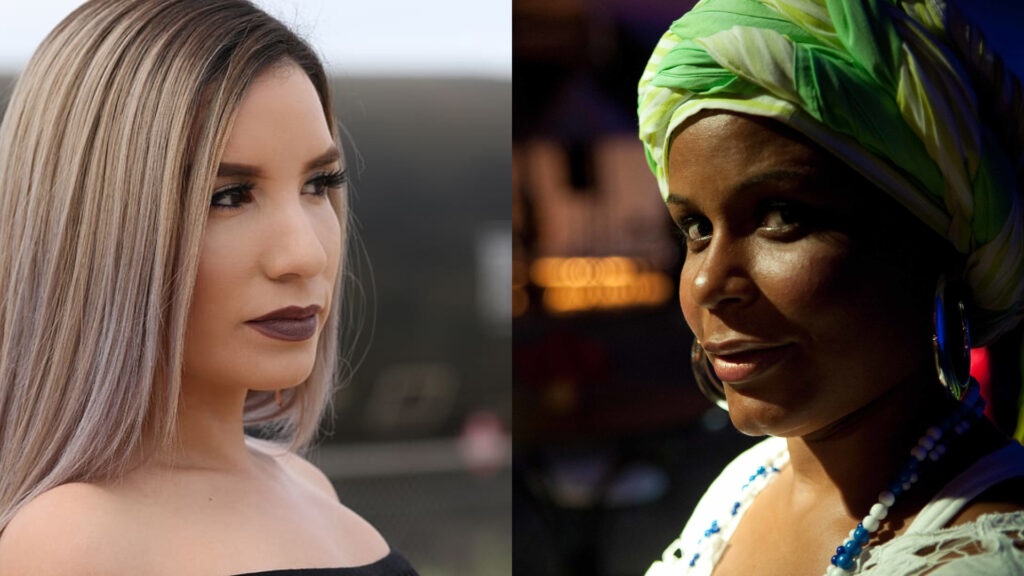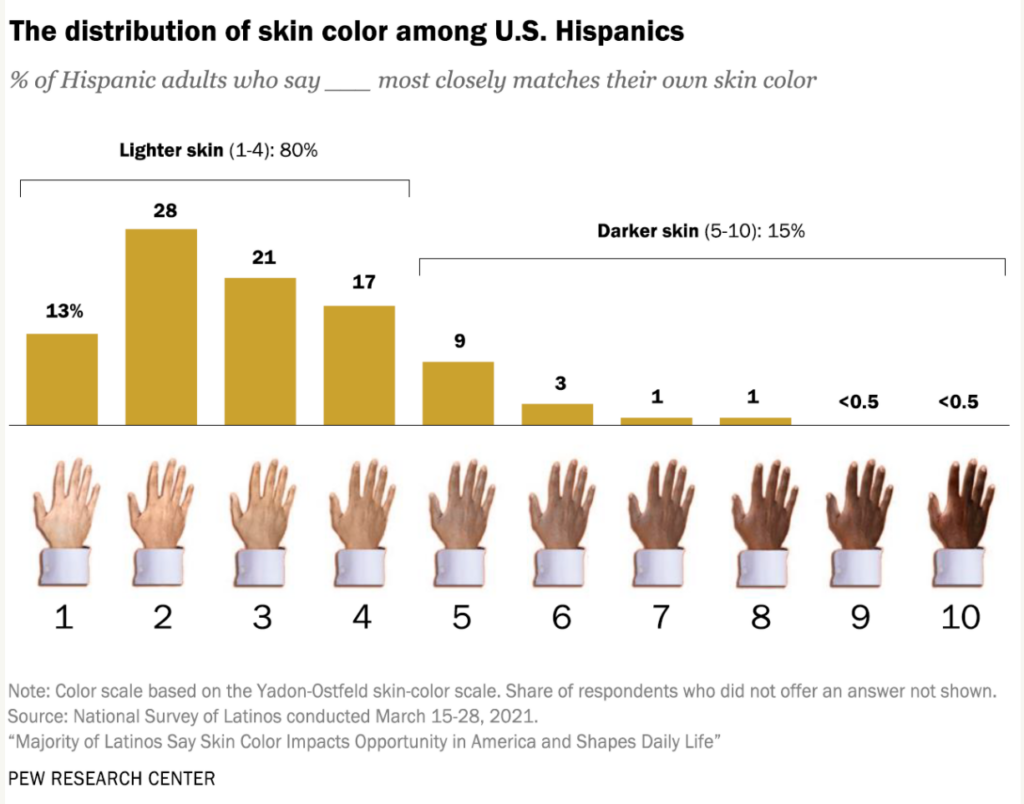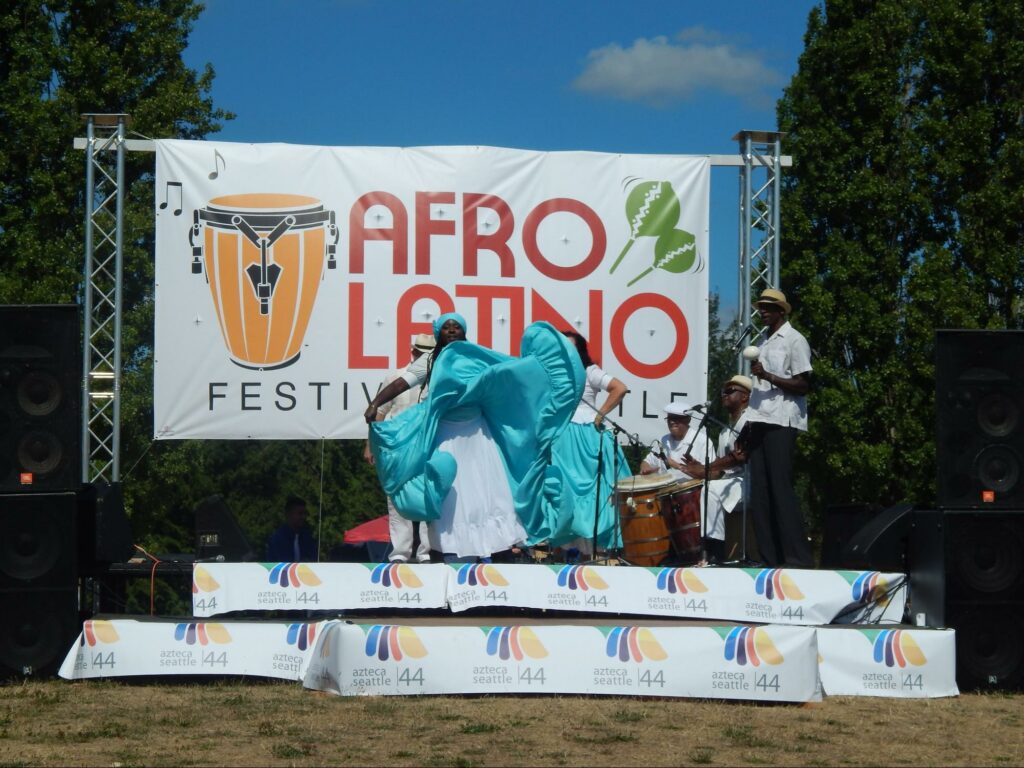
It’s something we already know, and now a new study confirms it. Latinos with darker skin experience more discrimination than Latinos with lighter skin. While Latinos of all skin colors recognize this, colorism exists in our own communities.
The Pew Research Center asked 3,375 U.S. Latinos about the impacts of skin color in their own lives and opportunities. They were also shown 10 skin colors and asked to select one that best matched their own. A vast majority – 80% – chose one of the four light skin colors; while 15% selected one of the darker skin colors.

Among all respondents, roughly 60% agreed that:
- Having a darker skin color hurts Latinos’ ability to get ahead.
- Having a lighter skin color helps Latinos to get ahead.
- Skin color shapes their daily life experiences.
Still, the survey made clear that darker skinned Latinos were more likely to face discrimination. Respondents were given eight discrimination incidents to choose from, including “people acted as if you were not smart,” “told to go back to your country,” and “called offensive names.”
Among darker skinned Latinos, 64% said they experienced at least one discrimination incident. Among lighter skinned Latinos, 54% said the same.

Of note was the response to the question about experiencing discrimination by someone who is also Latino. More than 40% of darker skinned Latinos said they had, compared to 25% of lighter skinned Latinos who had.
Colorism in the Latino community has gained attention lately, with the lack of Afro Latino representation in the Lin-Manuel Miranda movie, “In the Heights.” The murder of George Floyd last year also sparked a discussion about anti-Black racism among Latinos. And a newly published collection of essays and poems called “Wild Tongues Can’t Be Tamed” explores the issue from the perspectives of 15 different Latino authors.

“Regardless of their skin color, Latinos are very aware of colorism in their community and how having darker skin color can hurt their chances to get ahead in life and, in the opposite way, how having lighter skin can help them get ahead,” said Ana Gonzalez-Barrera of the Pew Research Center.
The survey found that conversations about skin color and racism are more likely to happen among darker skinned Latinos than among lighter skinned Latinos.




